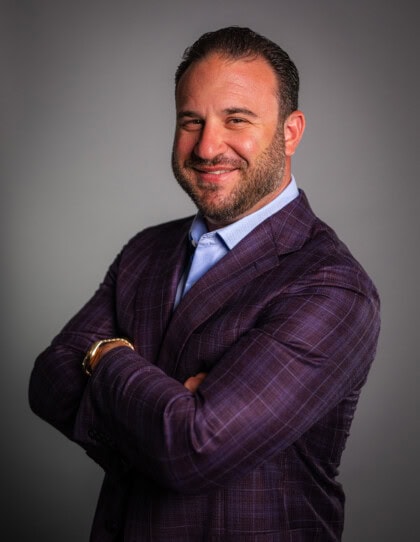An assault charge in Florida carries significant legal weight, often initiating a cascade of serious consequences for the accused. One of the most immediate and impactful of these is the issuance of a no-contact order. This legal directive serves to prevent any form of interaction between the person accused of assault and the alleged victim.
For those facing such an order in Florida, these legal directives profoundly disrupt an individual's personal freedoms and daily routines. Understanding them and securing prompt legal guidance is paramount. Keep reading to learn more about the immediate impact of an assault charge on your freedom.

Understanding Florida No-Contact Orders in Assault Cases
For anyone facing an assault charge in Florida, a no-contact order is one of the most immediate and impactful legal directives. Grasping the specifics of this court order, designed to ensure safety and prevent further incidents, is crucial from the outset of your case.
What is a No-Contact Order?
A no-contact order is a legal directive issued by a Florida court, typically following an arrest for an assault charge. Its primary purpose is to prevent any form of contact between the accused and the alleged victim. This measure ensures the alleged victim's safety and prevents any further incidents or potential witness intimidation.
These orders are temporary and usually remain in effect until the court date for the underlying criminal case. While temporary, a no-contact order can potentially last for the duration of the case, plus an additional 12 months of probation once the case concludes. This differs significantly from a civil injunction for protection, as a no-contact order is specifically tied to a criminal proceeding.
When and How Are They Issued?
No-contact orders in Florida are often issued early in the legal process. In most cases, a judge imposes this order at the first court appearance, especially if the situation involves domestic violence or an assault. The court aims to establish immediate protective measures.
A judge typically issues the order as a condition of bond or pretrial release, meaning it becomes effective immediately upon issuance. If the court determines a no-contact order is appropriate, it might issue a temporary ex parte injunction, which remains in effect for 15 days, pending a full hearing. This swift action helps ensure the alleged victim's safety from the outset of the case.
Key Differences: No-Contact Order vs. Restraining Order
It's important to differentiate between a criminal no-contact order and a civil injunction for protection, often referred to colloquially as a restraining order. Although both aim to prevent contact, their legal bases and origins differ significantly. A criminal court issues a no-contact order as an integral part of an ongoing criminal case, such as an assault charge.
Conversely, an injunction for protection is initiated by a petitioner in civil court, seeking protection from harm, domestic violence, or stalking. While the state imposes a no-contact order as a condition of release in a criminal matter, a civil injunction requires the alleged victim to formally request court intervention. The duration and specific terms of each order also vary, reflecting their distinct legal purposes and frameworks.
The Far-Reaching Restrictions Imposed by a No-Contact Order
A no-contact order places significant limitations and restrictions on an individual accused of assault in Florida. These legal directives immediately impact various aspects of daily life and personal freedom, demonstrating their comprehensive nature. The order's scope extends beyond simple physical separation, influencing communication, living arrangements, and family interactions.
Direct and Indirect Communication Prohibitions
The communication restrictions imposed by a no-contact order are extensive and broad. The order prohibits all direct contact, including in-person meetings, phone calls, text messages, emails, and direct social media messages. This means any attempt to communicate with the alleged victim through these channels constitutes a violation.
No-contact orders also extend to indirect communication, such as interactions through third parties, social media actions like "likes" or comments, or other electronic means. Even seemingly innocent or accidental contact can be considered a violation. For example, texting, calling, or emailing an alleged victim can be considered a restraining order violation. Furthermore, communication through platforms like Facebook, Twitter, and LinkedIn is also prohibited.
Physical Proximity and Residency Limitations
In addition to communication bans, no-contact orders often impose strict rules regarding physical proximity. These orders commonly mandate that the accused stay a certain distance away from the alleged victim's home, workplace, school, or any other specified locations. This creates immediate challenges for individuals whose daily routines might intersect with these areas.
Residency limitations are particularly impactful, especially if the alleged victim lives in the same household as the accused. In such cases, a no-contact order prohibits the respondent from residing in the same residence as the petitioner. This often forces the accused to find alternative living arrangements, causing immediate disruption. Florida law also prohibits the purchase or possession of a firearm by any person subject to a final court order restraining them from committing acts of domestic violence, stalking, or cyberstalking, adding another layer of restriction.
For those sharing a residence with the alleged victim, the immediate challenge extends to retrieving personal belongings, mail, or managing shared responsibilities. It's crucial in these situations to coordinate with your attorney to arrange a police-supervised escort for property retrieval. This ensures no direct contact is made and the order is strictly followed, as attempting to manage these logistics independently risks severe violation.
Impact on Family Life, Children, and Shared Assets
No-contact orders can significantly disrupt family life, especially when the alleged victim is a spouse or co-parent. These orders can complicate child custody arrangements, making established visitation schedules impossible without court modification. Direct communication about children or shared responsibilities becomes prohibited, creating a difficult situation for co-parenting.
Access to shared property or finances can also be severely limited, forcing individuals to navigate complex legal channels to address these matters. The accused must often establish alternative, court-approved communication channels for discussing co-parenting plans or managing shared assets. This restriction highlights the profound limitations placed on personal freedom, extending into the most intimate aspects of one's life.
Navigating the Legal Landscape After Receiving a No-Contact Order
Receiving a no-contact order in Florida marks a critical juncture in an assault case. The severity of these orders demands immediate and careful attention, as any misstep can lead to further legal complications. Understanding the initial steps and crucial considerations after an order is issued is paramount.
Immediate Steps to Take When Served
When served with a no-contact order, the first and most important step is to read and understand the document thoroughly. This includes noting all specific prohibitions, distances, and affected locations. Immediately ceasing all contact with the alleged victim, directly or indirectly, is non-negotiable.
It's also advisable to document your compliance by noting the date and time you received the order and any actions you take to adhere to it. Individuals should avoid any attempt to negotiate or communicate with the alleged victim directly. The court issues the order, and only the court is allowed to modify it, making legal counsel for no-contact orders essential.
It's critical to understand that even if the alleged victim attempts to contact you, you must not respond. Responding, even to tell them to stop, can be construed as a violation on your part. Immediately document any such attempts and inform your attorney, who can advise on the proper legal steps and notify the court.
The Grave Consequences of Violating a No-Contact Order
Violating a no-contact order in Florida carries severe repercussions. A violation can lead to immediate re-arrest, adding new criminal charges to an already existing assault case. These new charges might include Violation of Pretrial Release or even Aggravated Stalking, depending on the nature of the violation. Aggravated Stalking, for instance, involves a pattern of conduct that causes substantial emotional distress to the alleged victim and serves no legitimate purpose, and repeated violations of a no-contact order can quickly escalate to this more serious charge.
Such violations typically result in harsher penalties, potentially leading to increased bond amounts or even the revocation of bond, meaning the accused could remain in jail until their trial. A violation also negatively impacts the underlying assault case, as it can be interpreted as a disregard for court orders and a threat to the alleged victim's safety, prejudicing the defendant's position in court.
Seeking Experienced Legal Counsel
Retaining an experienced criminal defense attorney, like those at Weinstein Legal Team, immediately after receiving a no-contact order is critically important. A lawyer can interpret the specific terms of the order, advising on strict compliance to avoid further legal trouble. They represent the accused in court, ensuring their rights are protected throughout the legal process.
Furthermore, an attorney can explore legal strategies for challenging or modifying the order, which might be necessary if the terms are overly restrictive or circumstances change. Legal counsel is essential for navigating the complex legal landscape of an assault charge and its associated no-contact order.
Challenging and Modifying a Florida No-Contact Order
While a no-contact order can feel absolute, avenues exist for individuals seeking to challenge or modify its terms in Florida. This legal process requires careful adherence to court procedures and a clear understanding of the grounds for such requests. A skilled attorney plays a vital role in advocating for the client's interests, all while respecting the court's authority and primary concern for safety.
Grounds for Modification or Termination
A no-contact order can be modified or terminated based on several legal grounds. One common scenario involves the mutual consent of both parties, where the alleged victim no longer fears the accused and formally requests a modification or termination. However, it's crucial to understand that while the alleged victim's input is often a significant factor, the court alone holds the authority to modify or terminate an order, regardless of any informal agreements between parties.
Significant changes in circumstances, such as the victim moving out of state or other demonstrable changes that eliminate safety concerns, can also be grounds. Additionally, if the order is deemed overly broad or unnecessary for safety, a court may consider adjusting its terms. Common reasons to modify an NCO also include demonstrating a changed living situation that addresses safety concerns or completing court-ordered programs, which shows a commitment to rehabilitation.
The Petition and Court Hearing Process
Seeking a modification or termination of a no-contact order involves a specific procedural path. The accused, through their attorney, must file a formal motion with the court. This motion must clearly detail the specific reasons for the request, providing a legal basis for why the order should be changed or ended.
Following the filing, a court hearing will be scheduled. During this hearing, both sides will have the opportunity to present arguments and evidence supporting their positions. The judge will then carefully consider all information, including the alleged victim's input and any evidence of changed circumstances. Ultimately, the judge makes the final decision on whether to grant, deny, or modify the order.
The Role of a Criminal Defense Attorney in Advocating for Your Freedom
A criminal defense attorney provides invaluable assistance when challenging or modifying a no-contact order. They are responsible for preparing and filing the necessary motions with the court, ensuring all legal requirements are met. An attorney also plays a crucial role in gathering evidence that supports the request for modification or termination.
During court hearings, a skilled lawyer presents compelling arguments on behalf of their client. They can also facilitate appropriate communication with the prosecution and, where legally permissible, with the alleged victim to explore potential agreements. Ultimately, a criminal defense attorney vigorously advocates for the client's rights and personal freedom, expertly navigating the legal complexities involved in these sensitive cases.
Protect Your Rights: Contact Weinstein Legal Team Today
The issuance of a no-contact order following an assault charge in Florida can dramatically impact an individual's life, imposing immediate and significant restrictions on personal freedoms and relationships. Understanding the specifics of these orders, including their broad prohibitions on communication and proximity, is crucial for anyone facing such legal challenges.
Strict compliance is paramount, as violations carry severe consequences that can further jeopardize one's legal standing and impact their underlying assault case. In 2019, 105,298 crimes of domestic violence were reported to the FDLE, resulting in 66,069 arrests.
If you are facing a no-contact order in Florida, don't attempt to navigate these serious legal challenges alone. The experienced criminal defense attorneys at Weinstein Legal Team are dedicated to protecting your rights and fighting tirelessly on your behalf. Contact us today for a confidential consultation to discuss your case and learn how our legal counsel can help you understand and challenge your no-contact order.


